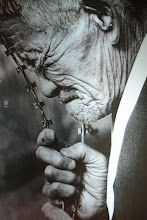The practical application of philosophy is a major concern expressed by al-Farabi in many of his works, and while the majority of his philosophical output has been influenced by Aristotelian thought, his practical philosophy is unmistakably based on that of Plato.[54] In a similar manner to Republic (Plato), al-Farabi emphasizes that philosophy is both a theoretical and practical discipline; labeling those philosophers who do not apply their erudition to practical pursuits as "futile philosophers". The ideal society, he says, is one directed towards the realization of "true happiness" (which can be taken to mean philosophical enlightenment) and as such, the ideal philosopher must hone all the necessary arts of rhetoric and poetics to communicate abstract truths to the ordinary people, as well as having achieved enlightenment himself.[55] Al-Farabi compares the philosopher's role in relation to society with a physician in relation to the body; the body's health is affected by the "balance of its humours" just as the city is determined by the moral habits of its people. The philosopher's duty, he says, is to establish a "virtuous" society by healing the souls of the people, establishing justice and guiding them towards "true happiness".[56]
Of course, al-Farabi realizes that such a society is rare and will require a very specific set of historical circumstances in order to be realized, which means very few societies will ever be able to attain this goal. He divides those "vicious" societies, which have fallen short of the ideal "virtuous" society, into three categories: ignorant, wicked and errant. Ignorant societies have, for whatever reason, failed to comprehend the purpose of human existence, and have supplanted the pursuit of happiness for another (inferior) goal, whether this be wealth, sensual gratification or power. It is interesting to note that democratic societies also fall into this category, as they too lack any guiding principal. Both wicked and errant societies have understood the true human end, but they have failed to follow it. The former because they have willfully abandoned it, and the latter because their leaders have deceived and misguided them. Al-Farabi also makes mention of "weeds" in the virtuous society; those people who try to undermine its progress towards the true human end. [57]
Monday, 5 May 2008
Subscribe to:
Post Comments (Atom)




1 comment:
Al Farabi makes some very intersting point which sounds to like a basis of serious activism. A continoual struggle to attain the "true human end". Struggle being the key word in that sentence as opposed to attain. The never ending struggle, based on knowledge and contemplation of the self and the unvivers (i.e. philosiphy) and the practical administration of that struggle of the self to a more defined and practical outward struggle against oppression, injustice and hatred on Earth. But this is not a chronological struggle or battle, one after the other but a continous one fought on many fronts, against the self and the societal values or norms that pervade and corrupt us, that we ignore, or more dangerously forget.
I understand i might be vague. Hopefully my sturggles will make this all clearer for me.
Post a Comment